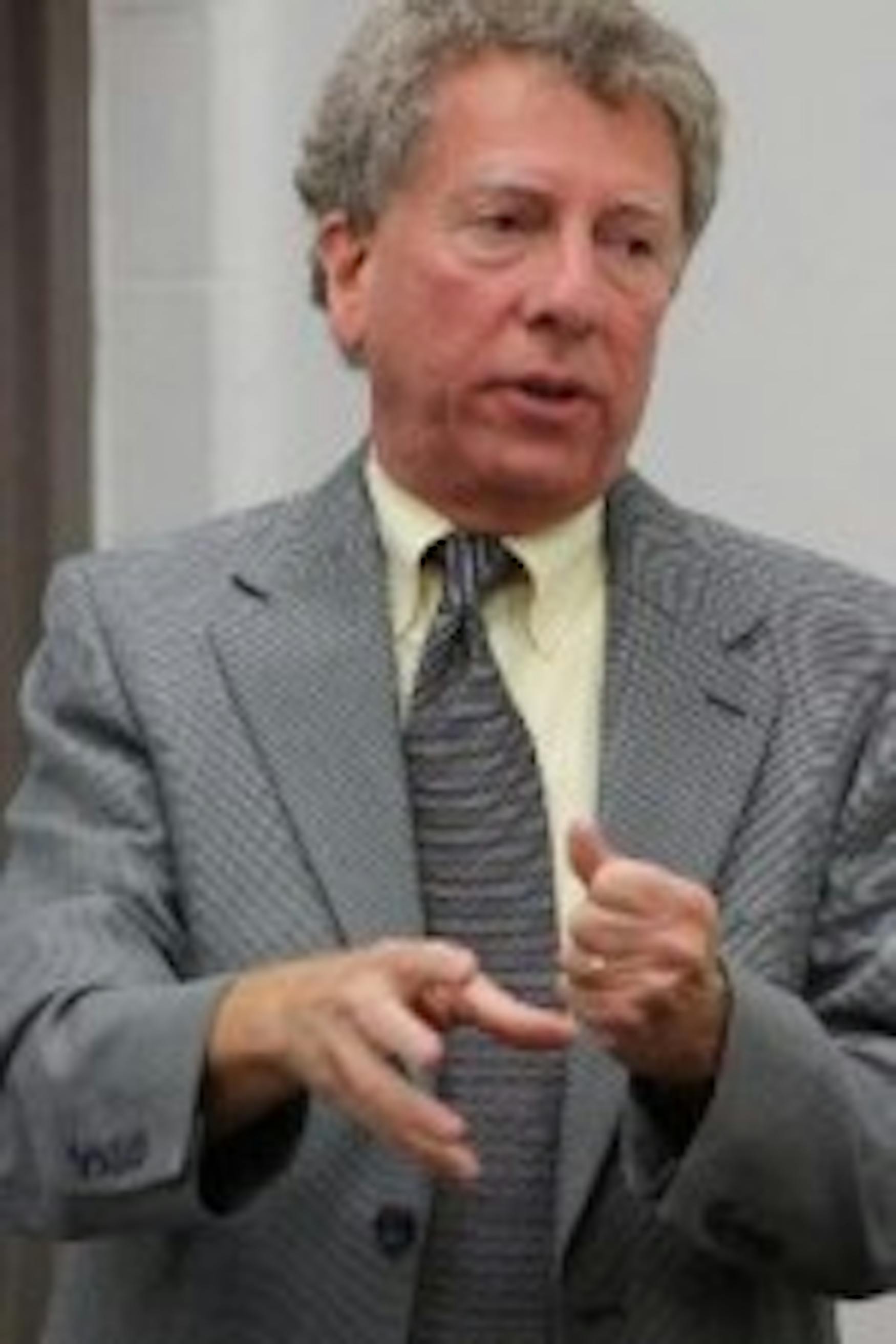Klibanoff discusses civil rights coverage
Pulitzer Prize-winning author and journalist Hank Klibanoff discussed his book on the evolution of the press's coverage of the civil rights movement, The Race Beat: The Press, the Civil Rights Struggle and the Awakening of a Nation at an event last Thursday.The lecture, titled "The Race Beat: Then and Now," was sponsored by the Journalism Program, the International Center for Ethics, Justice and Public Life, the Schuster Institute for Investigative Journalism, the Department of American Studies, the Social Justice and Social Policy Program and Gen Ed Now.
Klibanoff, a native of Alabama, grew up in the forefront of the changing race relations.
He uses his Southern background as well as his 35 years as a newspaper reporter and editor for publications such as the Atlanta Journal-Constitution, the Boston Globe and the Philadelphia Inquirer to write his award-winning book alongside Prof. Gene Roberts of the University of Maryland Philip Merrill College of Journalism.
Klibanoff said that he and Roberts "tried to make [The Race Beat] very much about storytelling."
Klibanoff said that "The Race Beat really begins far outside the South, nowhere near a newsroom."
He said that the book begins in 1938, in a boardroom of the Carnegie Corporation, which funded a survey called "Negro in America," led by Swedish sociologist Gunnar Myrdal.
The findings resulted in the publication of Myrdal's An American Dilemma. "On page 48, in italics, he frames his thinking in a way that launched our book," said Klibanoff.
"To get publicity is of the highest strategic importance to the Negro people," wrote Myrdal.
Klibanoff also discussed his current project, "The Cold Case Truth and Justice Project," an attempt to investigate unsolved racial crimes and murders during the Civil Rights era.
"Our goal is to get right with history, to fill in all the gaps ... and set the stage for racial healing," said Klibanoff.
The Center for Investigative Reporting is leading the project, using vast resources and groups to serve justice and hopefully criminal prosecution for some of the many long-ago closed cases, he said.
Prof. Maura Jane Farrelly (JOUR), who encouraged all her students to attend the lecture, told the Justice that she was very pleased with the outcome of the event.
"My hope, I guess, is that the people who attended the event will walk away with a real appreciation of the vital role that the news industry plays in sustaining, expanding and realizing the democratic and pluralistic ideals upon which this country was founded," Farrelly said.
Prof. Eileen McNamara (JOUR) who has known Klibanoff personally through the Boston Globe for 30 years, told the Justice, "Hank Klibanoff's presentation reminded us of the history-shaping role journalists can play by seeing or failing to see injustice in their own communities."
"I urged my reporting class and my ethics classes to attend because the lessons of the era he recounts in The Race Beat are just as relevant to today's journalism students," said McNamara.
Sung Taek Chung '12, a student from Farrelly's "Advertising and the Media" class, said, "I got very emotionally engaged [with the lecture]. . As an international student hearing about racial prejudice in the American South, I also got a stronger feel for the reason why it was inevitable for such powerful and daring journalism to develop in America."
"I thought Mr. Kibanoff's lecture was very intriguing, and it gave a lot of insight concerning the Civil Rights movement," Diana Cincotta '11 said. "He appeared very passionate about the topic, which definitely created a more interesting and engaging lecture.



Please note All comments are eligible for publication in The Justice.